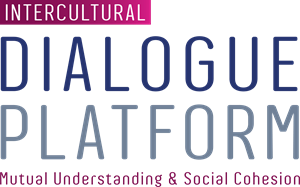A conference on Hizmet (Gulen) Movement was organised at the European Parliament, hosted by Mr Lambsdorff MEP, vice president of European Parliament.
The Hizmet Movement has been attracting an increasing European and international attention. This is partly because the movement is now more visible due to its evolving transnational character and its increasing capacity to inspire more people to carry out projects primarily in the fields of education, intercultural understanding, respect for diversity and humanitarian aid. Besides, the movement has consistently and publicly taken a clear position against any kind of religious extremism and violence. On the other hand, the presence and activities of the Movement trigger some controversy. Some question to its objectives, organization style, role with politics and the extent of its impact.
Furthermore, the Hizmet Movement has recently become the open target of the then Turkish president Erdoğan and his allies. R. Tayyip Erdoğan constantly diabolized Mr. Fethullah Gülen, the inspirer of the Movement, and he led a witch hunt for the participants of the Movement in the country. In the past, the Hizmet Movement had supported AK Party policies which were progressive, pro-EU and more democratic. However, it then became a strong critic of the Erdoğan regime, opposing its increasingly authoritarian policies and laxity against the serious corruption charges.
The Movement is actively present in many European countries. Its participants have taken various initiatives and established schools, education/culture centers, dialogue organizations and businesspeople associations. Moreover, Mr. Gülen is among few (religious) leaders in Turkey which have consistently supported the EU peocess. The participants believe that Turkey deserves a well-functioning democray, better records in human rights, thus the EU is the best leverage to achive this. However, the movement similarly also faces critics from some groups in Europe.
Certain questions, then, call for reflection: What is the Hizmet Movement all about ? What makes its participants move? Is it a threat or an opportunity? How do they think on pertinent European issues? Why is there so much controversy surrounding the movement, particularly in Turkey?
This panel debate, first of its kind in the European Parliament, aims to bring insider perspectives to better position the mindset of the Movement, controversy about it as well as to inquire its relevance for Europe. There will be two panelists, Özcan Keleş, the chairperson of the London-based Dialogue Society and İhsan Yılmaz, associate professor at Faith University, Istanbul. While Mr. Keleş will reflect more on the inspiration, objectives and relevance of the Movement through his personal story, Dr. Yılmaz will reflect more on the current situation in Turkey and the Movement’s opposition.
SPEAKERS:
Prof. Ihsan Yilmaz (Fatih University, Istanbul)
Ihsan Yilmaz is Associate Professor of Political Science at Fatih University, Istanbul, Turkey where he is also the Director of the PhD Programme in Political Science and International Relations at the university’s Institute of Social Sciences. He received his BA in Political Science and International Relations from the Bosporus University in 1994 and completed his PhD at the Faculty of Law and Social Sciences, School of Oriental and African Studies (SOAS), University of London in 1999. He is the author of (2005) Muslim Laws, Politics and Society in Modern Nation States: Dynamic Legal Pluralisms in England, Turkey and Pakistan, Aldershot, Ashgate.
He is the editor of Turkish Journal of Politics (TJP) and regular columnist of Today’s Zaman, an English language daily published in Turkey.
Possible topic with Prof Yilmaz: Turkey’s Current Challenges in Foreign Policy & Domestic Issues
Mr. Ozcan Keles – Chairman of Dialogue Society London
Ozcan is a non-practising Barrister and member of the Honourable Society of Gray’s Inn. He was the Executive Director of Dialogue Society from 2008 until September 2014. Between 2006 and 2009 Ozcan was a full-time Doctoral Candidate in Human Rights Law at the Human Rights Centre of the University of Essex, where he held the Scholarship Award of 2006.
He obtained his LLM in Human Rights Law from SOAS, University of London, in 2002.



Recent Comments